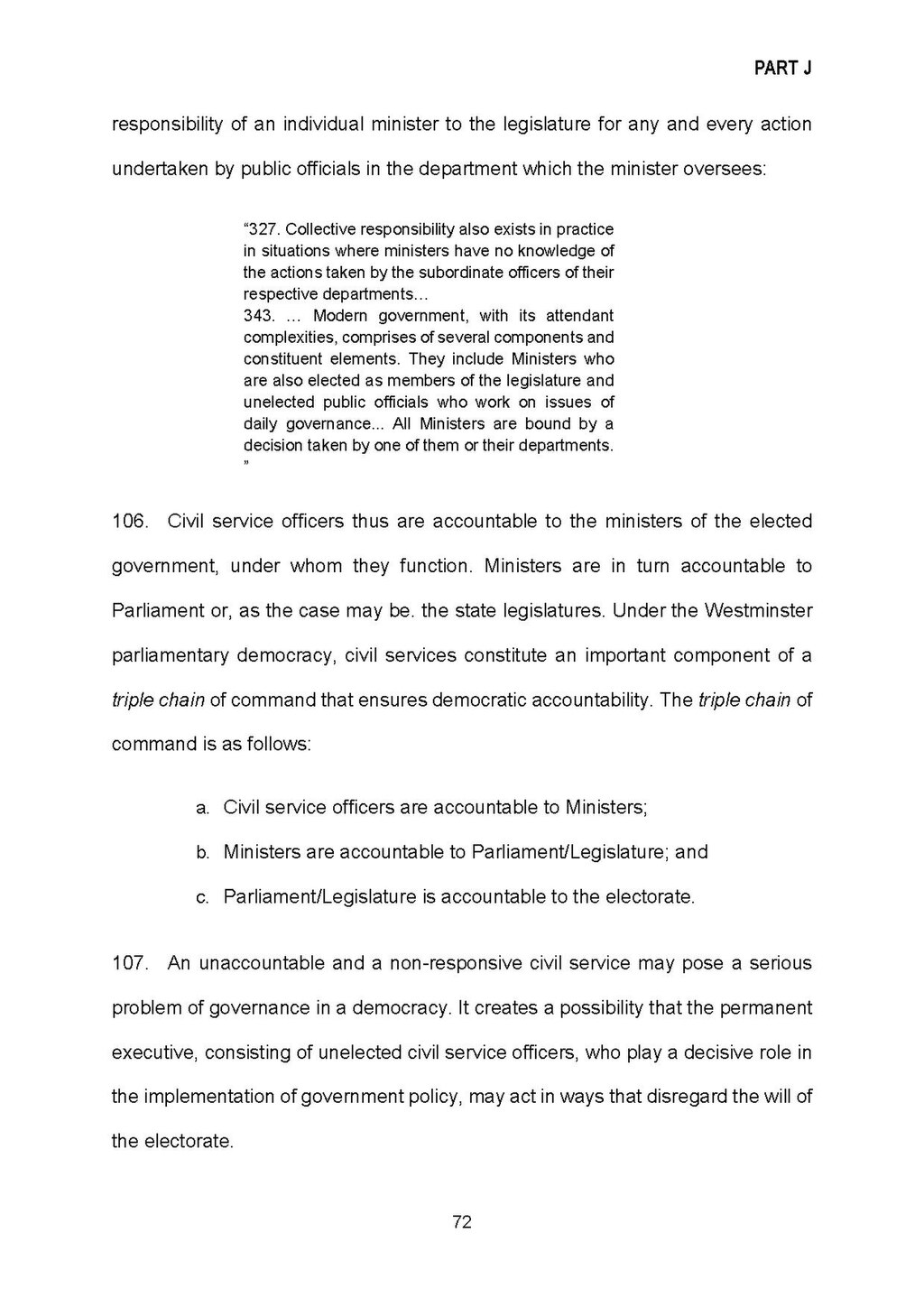responsibility of an individual minister to the legislature for any and every action undertaken by public officials in the department which the minister oversees:
“327. Collective responsibility also exists in practice in situations where ministers have no knowledge of the actions taken by the subordinate officers of their respective departments… 343. … Modern government, with its attendant complexities, comprises of several components and constituent elements. They include Ministers who are also elected as members of the legislature and unelected public officials who work on issues of daily governance... All Ministers are bound by a decision taken by one of them or their departments. ”
106. Civil service officers thus are accountable to the ministers of the elected government, under whom they function. Ministers are in turn accountable to Parliament or, as the case may be. the state legislatures. Under the Westminster parliamentary democracy, civil services constitute an important component of a triple chain of command that ensures democratic accountability. The triple chain of command is as follows:
a. Civil service officers are accountable to Ministers;
b. Ministers are accountable to Parliament/Legislature; and
c. Parliament/Legislature is accountable to the electorate.
107. An unaccountable and a non-responsive civil service may pose a serious problem of governance in a democracy. It creates a possibility that the permanent executive, consisting of unelected civil service officers, who play a decisive role in the implementation of government policy, may act in ways that disregard the will of
the electorate.
72
